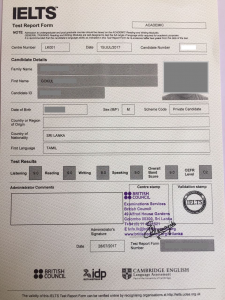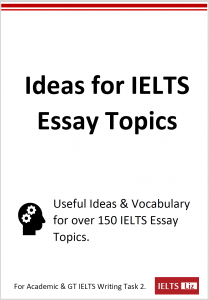I think it is a good time to talk about your IELTS Speaking Examiners. In the IELTS speaking test, you will be face to face with an IELTS speaking examiner who will ask you questions. There are three parts:
- short answer questions – about 12 questions in under 5 mins
- a talk – 1 mins to prepare and 1-2 mins to talk
- a discussion – about 4 to 8 questions in under 5 mins
The IELTS speaking test is informal. This means you need to be open, chatty and friendly throughout your test. This way you can showcase your English to the examiner. For speaking tips and model answers, see my Main IELTS Speaking Page
IELTS Examiners
IELTS examiners are supposed to be friendly, smiley and encouraging. They can’t be chatty with you but they should be encouraging in their body language, facial expressions and general manner. This is what they are taught to do.
BUT not all examiners are friendly. This means it can feel difficult to be chatty and friendly with an examiner if they don’t smile, yawn, avoid looking at you and show disinterest in what you say. Unfortunately, not all examiners are good with body language.
Your Preparation
You need to be prepared to face any type of examiner – encouraging or not encouraging You need to be mentally ready to be chatty and open even if the person you are talking to appears bored.
Your speaking test is 11 to 14 minutes in length. This is not a lot of time. But in that time, you can change your future. So, don’t let a bored examiner control your fate. Take your future into your own hands and be ready for anything.
Students’ Experience
Most IELTS students have a good experience in their IELTS speaking test and some even enjoy it. Most students found the examiner encouraging and friendly. This is the ideal situation. But examiners are humans and a few of them are not prefect – you must be prepared for that.
Your Experience
Please share your experience of the speaking test by posting below. Remember this is not a time to complain. It is a time to share experiences – good and bad. Please remember that the aim of this website is to prepare students for IELTS and also BUILD CONFIDENCE !!!
My Message to IELTS
It is time to get a camera in the IELTS speaking test room. Having an audio recording is not enough and certainly behind the times. Having a camera in the room means IELTS can monitor their examiners more closely to ensure that IELTS candidates who have paid money for this test are in fact being tested at the standard that IELTS have set. It should not be acceptable that IELTS have some examiners who put students off talking by appearing bored and annoyed. This entirely defeats the purpose of having a face to face speaking test rather than one done with a computer. IELTS want their speaking test to be as life like as possible – but at what time would you have a personal chat with someone for 14 minutes who wishes you weren’t in the room and shows it!








